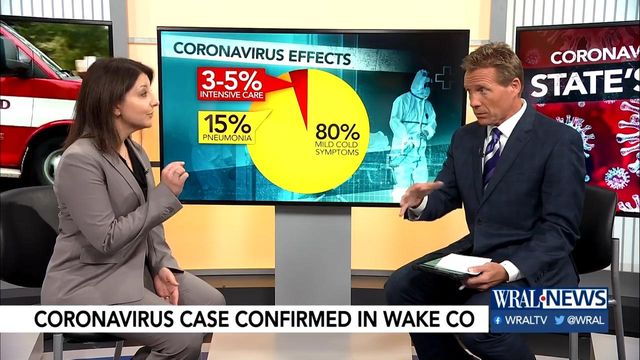What seniors need to know now that coronavirus is in North Carolina
The Corona Virus, which affects those over 80 at 15 times the rate as those under 50, is now in North Carolina. Here is what seniors need to know.
Posted — UpdatedSince the individual's visit to the Life Care Center, seven residents of the long term care facility have died from the virus.
According to the WHO director general, Dr. Tedros Adhanom Ghebreyesus, the virus, also referred to as COVID-19, has a 3.4 percent global mortality rate, as compared to the seasonal flu rate, which is less than 1%. However, many experts believe, as more people exhibiting mild symptoms are tested and included in the picture, that the mortality rate will go down.
Locally, long term care communities, as well as home health agencies that work primarily with seniors are buckling down on infection control. Gina Murray, RN, nurse practitioner and owner of Aware Senior Care, said, "Aware staff has been instructed to continue to follow Universal Precautions at all times. Employees will continue to routinely disinfect commonly touched areas, practice good hand hygiene and appropriate respiratory etiquette. Employees experiencing any respiratory symptoms should not report to work and call the office immediately."
If you think you have been exposed to the virus or are concerned you are developing symptoms, the Centers for Disease Control recommends calling your doctor, though it is likely at this juncture that your doctor will not have tests on-hand and may, after examining you, recommend you go to the hospital.
Ninety percent of people get a fever, 80% get a dry cough, and 30% experience shortness of breath and general malaise. Less than 1% are asymptomatic. Keep in mind that symptoms can appear up to two weeks after exposure.
Most importantly, seniors should be especially vigilant about washing their hands. They should avoid non-urgent visits to the doctor where there is a higher risk of inflection, the pharmacy or long term care facilities, especially if there is a reported case. Gambert recommends being proactive when going to communal settings, like seniors centers, churches, and dental offices and asking if there have been any coronavirus cases.
It is likely to get worse before getting better, but fortunately, spring is around the corner and warm weather tends to reduce transmission rates as more people spend time outdoors.
Related Topics
• Credits
Copyright 2024 by Capitol Broadcasting Company. All rights reserved. This material may not be published, broadcast, rewritten or redistributed.





